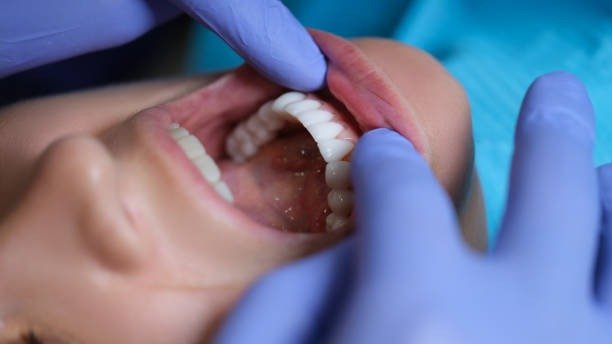
How Often Should Your Family Visit the Dentist?
When it comes to maintaining overall health, the significance of oral hygiene is often underestimated. Visiting the dentist regularly isn’t just about ensuring a bright smile; it’s a crucial aspect of your family’s healthcare routine. So, how often should your family visit the dentist? The answer isn’t more complex than you might think, as various factors influence the recommended frequency of dental checkups.
General Guidelines for Dental Checkups
Regular dental checkups are essential for maintaining oral health. Here are some guidelines and considerations for scheduling these appointments:
1. Frequency of Dental Visits
-
Biannual Visits: The standard recommendation for dental checkups is every six months. This frequency helps track changes in dental health and detect problems early.
-
Personalized Schedule: Depending on individual oral health status, genetics, and dental history, some people might need to visit the dentist more frequently.
2. Reasons for Regular Checkups
-
Cavity Detection: Regular visits allow dentists to catch cavities early before they lead to more severe tooth decay.
-
Gum Disease Prevention: Early signs of gum disease can be identified and treated before significant damage occurs.
-
Oral Cancer Screening: Dentists can screen for signs of oral cancer, which is crucial for early diagnosis and treatment.
3. Considerations for Increased Visit Frequency
-
Existing Oral Health Issues: Individuals battling ongoing dental problems such as gum disease might require more regular visits to manage their condition effectively.
-
Children and Adolescents: As children grow, their mouths undergo numerous changes. Regular dental visits can help ensure that their teeth are developing correctly and staying healthy.
-
Lifestyle Factors: Smokers or people who consume a lot of sugary foods and drinks may benefit from more frequent dental examinations and cleanings.
-
Pregnancy: Pregnant women might need additional checkups to manage changes in oral health during pregnancy.
Finding the best dentist in Harrison, NJ, who understands your family’s specific needs can make all the difference. Look for a practitioner who not only has the right qualifications but also a positive reputation among patients for comfort and care.
The Need for Regular Dental Visits in Preventive Care
Preventive care is a cornerstone of dental health. Routine visits to the dentist allow for the professional cleaning of your teeth, which removes plaque and tartar that can lead to gum disease and tooth decay. These visits also give dentists the opportunity to identify potential issues before they develop into major concerns.
Impact of Technology in Modern Dentistry
Advancements in dental technology have made visits more efficient and less painful. Innovative tools such as digital X-rays offer detailed images of your oral health while reducing radiation exposure. Furthermore, tools like intraoral cameras provide a closer look at dental issues, enhancing both diagnosis and patient understanding of various treatments.
Specialized Treatments That Enhance Oral Health
Modern dentists are equipped to provide specialized treatments that address specific dental needs. Treatments for aligning teeth, correcting bite issues, and durable and aesthetic bridges and crowns are just a few options that help maintain a healthy, functional, and appealing smile.
Customizing Dental Care According to Individual Needs
Only some people need to adhere strictly to the twice-a-year visit schedule. The frequency of dental visits should be tailored to each person’s unique oral health status and risk factors.
Factors Affecting Individual Dental Care Needs
-
Age: The youngest and oldest in your family might need different care regimens due to the unique issues that occur at different life stages.
-
Medical History: Conditions such as diabetes or autoimmune diseases also impact your oral health, requiring adjusted dental care approaches.
-
Personal Dental History: If you’ve had frequent cavities or gum disease in the past, you likely need more frequent checkups to maintain oral health.
Emergency Dental Visits
It’s important to know when to seek immediate emergency dental care. Situations such as severe pain, a broken tooth, or bleeding gums require prompt attention. Emergency dental services can alleviate pain, prevent further damage, and save teeth that might otherwise be lost.
The Impact of Dental Health on Overall Well-being
A healthy mouth contributes to a healthy body. Poor oral health can lead to issues beyond toothaches and gum disease. Studies have linked dental problems to heart disease, stroke, and other serious health conditions. By keeping your routine dental checkups, you’re not only safeguarding your smile but also boosting your overall health.
Encouraging Good Dental Habits in Children
Instilling good dental habits in children from a young age sets the foundation for lifelong oral health. Encourage brushing twice a day, flossing daily, and understanding the importance of eating a balanced diet for oral health.
Final Thoughts
Maintaining regular dental visits is essential for early detection and prevention of dental issues, ensuring that your family enjoys both good oral health and overall well-being. Customize your dental care routine based on individual health needs and stay in regular contact with your dental professional. Remember, a proactive approach to dental care can lead to a lifetime of smiles.



